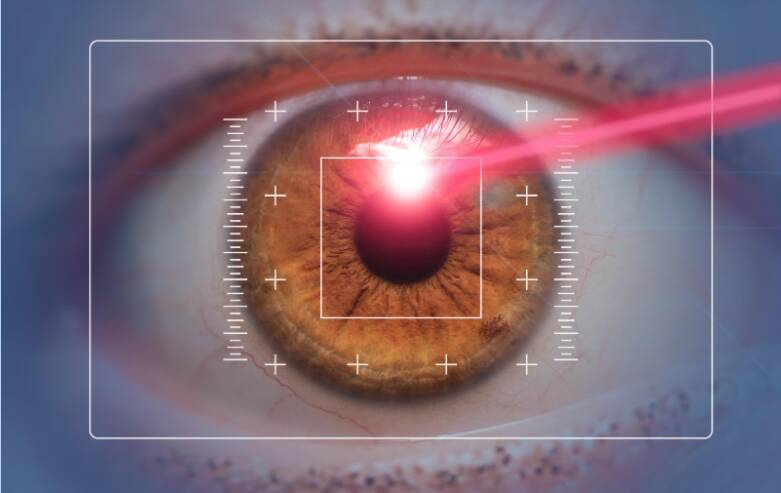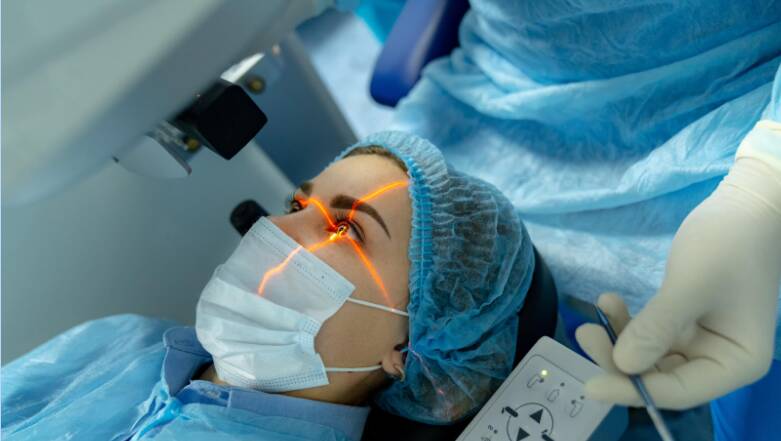Is laser eye surgery right for you? Understanding the criteria and process

This is branded content.
Laser eye surgery, also known as refractive surgery, has become increasingly popular in recent years to correct vision problems without needing glasses or contact lenses. However, it's essential to understand that laser eye surgery is unsuitable for everyone. Before undergoing this procedure, it's crucial to consider various factors to determine if it's the right choice for you.
Understanding laser eye surgery
Laser eye surgery is a procedure that uses a laser to reshape the cornea, the clear front part of the eye, to improve vision. It can correct refractive errors such as nearsightedness (myopia), farsightedness (hyperopia), and astigmatism. By altering the shape of the cornea, laser eye surgery can help light to focus properly on the retina, resulting in clear vision.
Criteria for eligibility
Only some people are suitable candidates for laser eye surgery. Several factors determine eligibility, including:
1 Age: Candidates for laser eye surgery must be at least 18 years old, as the eyes are still developing during adolescence. Additionally, individuals over 40 may experience changes in their vision due to presbyopia. In this condition, the eye's lens becomes less flexible, making it difficult to focus on close objects. Laser eye surgery may not be as effective for correcting presbyopia.
2 Stable Vision: Candidates should have stable vision for at least one year before considering laser eye surgery. Fluctuations in vision can affect the procedure's outcome, so it's essential to ensure that your prescription has not changed significantly over time.
3 Overall Health: Good overall health is crucial for successful laser eye surgery. Certain medical conditions, such as autoimmune disorders, diabetes, and severe dry eye syndrome, may increase the risk of complications during and after the procedure. It's important to discuss your medical history with your eye surgeon to determine if laser eye surgery is safe for you.
4 Eye Health: Candidates must have healthy eyes free from glaucoma, cataracts, or corneal diseases. These conditions can affect the success of laser eye surgery and may require treatment before undergoing the procedure.
The laser eye surgery process
Before laser eye surgery, you will undergo a comprehensive eye examination to assess your candidacy and determine the most suitable treatment option. The most common types of laser eye surgery include:
- LASIK (Laser-Assisted In Situ Keratomileusis): LASIK is the most popular type of laser eye surgery and is suitable for correcting mild to moderate refractive errors. During the procedure, a thin flap is created on the cornea, and a laser is used to reshape the underlying tissue. The flap is then repositioned, and the cornea heals naturally.
- PRK (Photorefractive Keratectomy): PRK is an alternative to LASIK for individuals with thin or irregular corneas. During PRK, the outer layer of the cornea is removed, and the laser is applied directly to the underlying tissue. The outer layer regenerates naturally over time.
- SMILE (Small Incision Lenticule Extraction): SMILE is a newer type of laser eye surgery that involves creating a small incision in the cornea to remove a tiny piece of tissue, reshaping the cornea, and correcting vision. SMILE may be suitable for individuals with moderate myopia.
Laser surgery process
Laser eye surgery is generally quick, taking about 30 minutes for both eyes. The specific steps involved depend on the type of surgery being performed but typically include numbing the eyes with drops, creating a thin flap in the cornea (in LASIK), reshaping the underlying corneal tissue with a laser, and then repositioning the flap (if applicable). Patients are usually awake during the procedure, although they may be given medication to help relax.

Post-surgical care and recovery
Recovery times can vary depending on the type of surgery performed. For instance, LASIK patients often notice significant improvements in vision within a few days, while PRK may involve a longer recovery period. Following surgery, patients typically have several follow-up visits to monitor the healing process and evaluate the correction's success. It's critical to follow all post-operative instructions your surgeon provides to minimise the risk of complications and ensure the best possible outcome.
Making the decision
Deciding to undergo laser eye surgery is a personal choice that should be made based on a comprehensive understanding of the benefits, risks, and long-term considerations. It requires careful consideration of one's health, vision needs, lifestyle, and expectations. Consulting with experienced and reputable eye care professionals can provide valuable insight and guidance in making this decision. It's also beneficial to speak with individuals who have undergone the procedure to hear firsthand about their experiences and outcomes.
Prospective candidates should take the time to research and consider all aspects of laser eye surgery. Choosing a qualified and experienced surgeon, understanding the pre-and post-operative requirements, and having realistic expectations about the results are all crucial steps in the journey toward an improved vision.
Final thoughts
Laser eye surgery can be life-changing for many individuals, providing freedom from glasses and contact lenses. However, it's essential to carefully consider the criteria for eligibility and understand the process before making a decision. Consulting with an experienced eye surgeon is the first step towards determining if laser eye surgery is right for you. Remember, your eye health is paramount, so prioritise safety and thorough assessment before proceeding with any surgical intervention.


